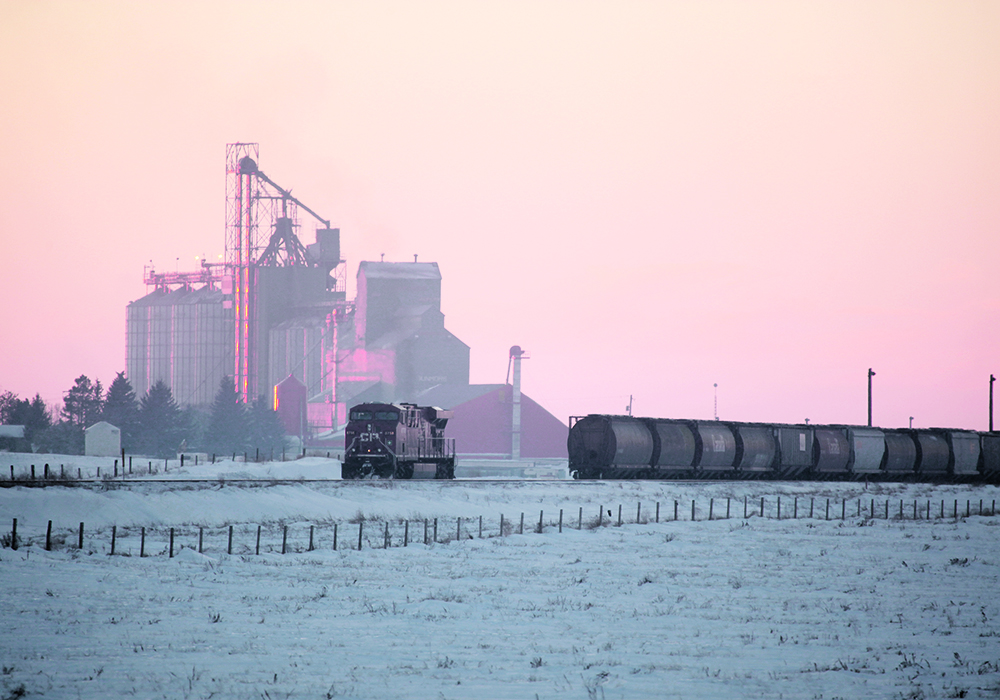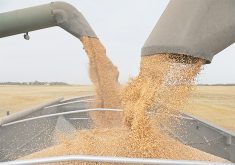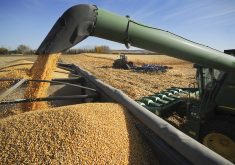I was surprised to see quite a few farmers and agriculture folks showing support for the “trucker” protests that blocked critical border crossings a couple months ago.
I don’t think I’d have been as surprised if I hadn’t seen many of the same sorts of producers outraged by the railway blockades that strangled much of Canada’s railway system in early 2020.
I’m not saying this to be moralistic or to suggest one or the other of the responses was hypocritical for people who were in favour of the one but denounced the other, but to highlight how hard it is to sort out rights and responsibilities in a healthy democracy like ours.
Read Also

Government support for Canadian farmers has plummeted
Subsidies in Canada were 30 per cent of gross farm receipts in 1980s and are now around eight per cent
A couple of weeks ago, I attended a virtual Canadian Agri-food Policy Institute panel discussion on whether Canada’s railways should be classified as essential services.
Predictably, those who are subject to the railways and have no ability to directly affect labour disputes were warm to the idea that railways be legally declared to be too vital to the national interest to be shut down by labour disruptions.
A former Canadian Pacific Railway senior official saw the issue as a “relatively minor matter” that didn’t warrant such government intervention. Labour unions have also been vocal in saying the government should not strip the industry of “normal” labour disputes. Your personal economic interests tend to dictate your views on this.
Should unions and companies be able to shut down railways or ports because they can’t agree on a new collective agreement?
Should Indigenous activists be able to shut down railways to force the rest of society to deal with their issues? Should anti-pandemic-mandate activists be able to shut down border crossings to draw attention to their concerns?
Where do we draw the lines between lawful protest, acceptable civil disobedience, unacceptable insurrections and truly essential services that cannot be allowed to be shut down?
In all these situations it can seem absurd to allow relatively tiny groups of people to hijack major infrastructure that millions of others rely upon but do not control.
In economic terms, most of the suffering caused by these infrastructure disruptions is called an “externality.” Farmers experience frequent losses from “externalities,” so much so that they are the source of much farm politics and policy debate.
Farmers suffer if their provinces’ highways and roads are allowed to decay, as happened in many prairie places after the Crow Benefit rail transportation incentive was cancelled and trucked grain began to travel farther.
When lockouts and strikes shut down railways, ports, packing plants and agricultural manufacturing plants, farmers are hit by lower prices they receive for their products and high prices for their inputs and the services they need.
And they have little recourse but to complain and try to get governments’ attention.
Could the government legislate away labour disruptions on the rails and save farmers occasional but large losses? Yes, absolutely. But it would have a lot of costs, not just to the sorting out of differences between employers and employees but also to the liberties of Canadians.
Could the government have swept away the railway blockades that cost farmers so much, both in terms of lost money and from Canada’s lost reputation as a reliable source of crops and meat? Absolutely.
Could the government have immediately smashed the border blockades that damaged many farmers and threatened much worse? Absolutely.
But all these issues have been resolved without severe permanent actions.
The imposition of today’s version of the War Measures Act in the recent “truckers” dispute was legally severe, but so too is it severe when governments legislate railways back into operation or police forces arrest and detain activists. However, all those actions are limited and temporary.
The problem with designating something as an essential service is the question of, where do you stop?
Many farmers have a handful of things they’d like to have declared as essential services. But so does every group in our society. We’re all dependent upon certain things we have trouble operating without. How widely would you strip workers, managers, business operators and professionals of the right to control their own labour and investments?
The Supreme Court has found labour rights to be charter rights, so crimping them too severely wouldn’t be easy. It probably isn’t something most people want to see. Our rights and democratic reality are our most valuable possessions. We shouldn’t blithely give them up as being inconvenient.
This country needs a better way to deal with various forms of economic hijacking. The years-long harassment of pipeline projects has been disastrous for this country’s ability to have a functional energy industry, and it bodes ill for building the many mining projects that will be vital if Canada wants to play a central role in the development of the electrical battery industry upon which so many of our climate change mitigation hopes rest.
But for temporary disputes and disruptions, like those we face in agriculture, we probably have to just accept them as the way one has to live and operate within a liberal democracy.
It can seem a ridiculous way to live, but it’s better than every other political system humanity has tried, and it’s what allows us to operate modern, efficient industries like agriculture, even though sometimes present-day realities seem to fly in the face of the long-term reality of our situation.
















